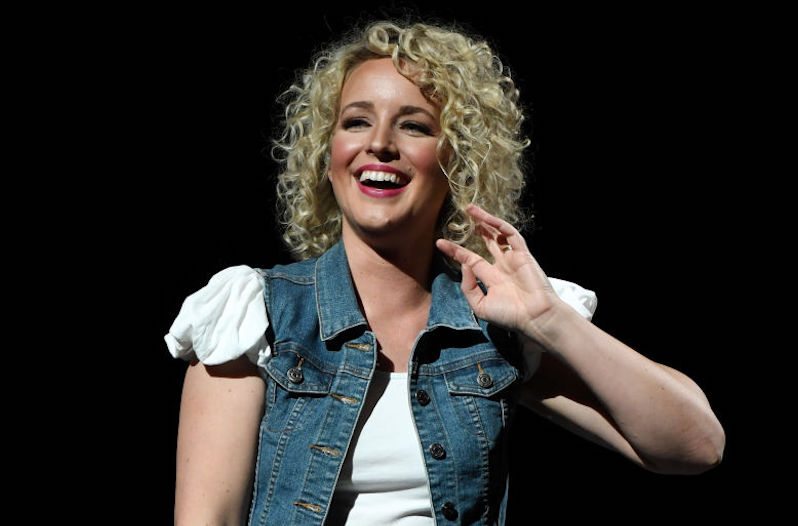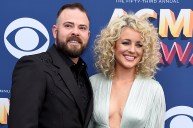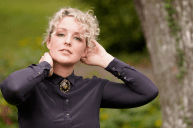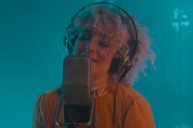Since the release of her breakout 2015 hit "Burning House," and her debut album Untamed, singer-songwriter Cam has been winning over audiences the world over with her soul-baring lyrics and rich vocals. She's also become known as a leader in the ongoing conversation regarding sexism in country music. (In May, Cam was announced as a member of the Recording Academy's new Diversity and Inclusion Task Force, created to address the challenges facing underrepresented artists in the music industry.)
Videos by Wide Open Country
Now the California native is embarking on a tour with her friend and frequent collaborator Sam Smith and preparing to release a brand new album, one she says will include the kind of storytelling that made her current single "Diane" a fan favorite.
"A lot of it is just stories that I think are really important that women get to hear right now and people get to hear right now," Cam tells Wide Open Country. "But I think because right now there's just not a lot of girls, it puts an extra responsibility to make sure you're making music that women can enjoy because other people aren't really making sure of that."
Women's voices and stories are sorely lacking on country radio, a fact that's been noted by artists such as Maren Morris and Cam herself, along with countless country fans. Still, the issue continues to go largely unchecked by the powers that be and female artists are still being told "women don't want to listen to women."
Cam says the myths and misconceptions that have permeated throughout the industry stem from a long-standing lack of women in leadership roles.
"I think it comes from historical reasons that women haven't been in the main decision making roles in a lot of different spaces, from labels to management groups to publicity to radio, in the studio, writing the songs. So you have kind of an absence of a specific voice anyway and the guys that are making the decisions... they keep hearing this and they think it's correct. Then nobody's challenging them because nobody's around that is educated enough," she says. "The few women that are around, I think people either aren't listening (to them) or they feel like it's risking too much to speak against it."
Read More: From the Kitchen to the Tailgate: Country Music's Struggle to Define Women
And while the discussion opened up by the "Me Too" movement is overdue, Cam says the work doesn't end there.
"With what happened with 'Me Too,' which obviously is more about safety in the workplace -- I mean, that's a basic human right -- and then on top of that, looking at the "step up" moment at the Grammys, it's this thing where, yes, women have come very far and we can be very grateful and we can hold two things in our mind at once," Cam says. "I would like to be able to make money how I'd like to make money. I'd like to be able to support myself and do a job that I think I'm doing well. That part of it is related to these other 'Me Too' moments, but I would like us to solve those obvious issues and go into a space of 'How can we be better?'"
Solving many of the overlying issues begins with representation. Cam says hearing more women on the radio, along with seeing them in more roles within the music industry, will encourage future generations.
"That's what music does, that's what entertainment does. If you can't see it, you can't be it. And that's how it recycles. The next generation is missing out on understanding where they can be in these spaces and that's why we've got to stop it," she says. "It's not just about supporting women just because they're women. It's about saying there are women that are talented that deserve no extra barriers. They can play this game. It's hard enough to play this game. Also, you don't address the entire system if you do that."
Cam will have a chance to reach even more audiences this summer when she joins pop superstar Sam Smith's The Thrill of it All Tour. (Cam co-wrote Smith's song "Palace," which was included on his 2017 album also titled The Thrill of it All.)
"He's great people and I'm so excited for us to be out on the road with him because that's a big part or your life," she says. "To have time with good people, it's like my quality of life gets to go up. And I know his fans show up for his voice and his music, so I know that I get to serve people that are excited for good content."
Cam, who studied psychology at Stanford before penning songs for Miley Cyrus and Maggie Rose, says her love of songwriting comes from her long-held fascination with the inner psyche.
"I've always been obsessed with like what is going on inside. 'Why do I feel this way?' I want to get all of those feelings out. I'm not a loud person or a super extroverted person, but I still really want to figure it out," she says.
Cam's willingness to delve into often difficult subjects has endeared her to country fans who are starved for real emotion. Case in point: her song "Diane," a response to Dolly Parton's timeless "Jolene." As Cam noted at a recent Nashville show, in the years since the release of "Jolene," there have been very few songs featuring a real conversation between women.
Cam says she encountered skepticism before releasing the song from those who said women would reject a song about an extramarital affair.
"That was another kind of myth that people told me: women won't want to be reminded of their pain," she says.
But from Kitty Wells to Emmylou Harris, heartache and unbridled emotion has been a central part of the songs recorded by country's most beloved artists. Today, Cam is carrying on that tradition. Through both her activism and lyrics, she's zeroing in on the most important aspect of country music: the truth.
"Talking about things that are difficult or hard -- honestly that is the tradition of country music, so I think it's really funny when people try and say you shouldn't do that," Cam says. "Women who have been through that -- they're like, 'Thank you for talking about this so I know I'm not alone, so I got an apology that I never got even if it's in a song and kind of just get to heal.'"




